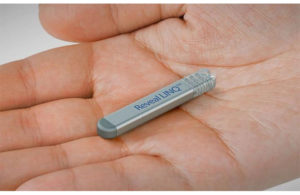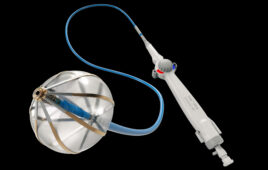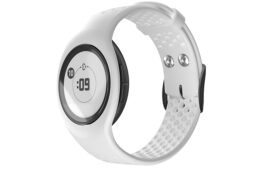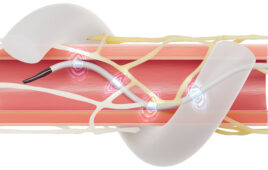
(Image courtesy of the University of Alberta)
A Medtronic implant was three times better than an external monitor at detecting new atrial fibrillation in stroke patients, a new study says.
The Post-Embolic Rhythm Detection With Implantable Versus External Monitoring (PER DIEM) study pitted Medtronic’s Reveal Linq implantable device, which monitors for AFib over 12 months, against the Spiderflash-T external device made by Sorin Group, which works over a 30-day period.
Researchers from the University of Alberta and the University of Calgary randomized 300 stroke patients to one of the two devices. Medtronic’s Reveal Linq picked up three times more new atrial fibrillation than the Spiderflash-T (15% versus 5%). The trial results were published today in the Journal of the American Medical Association.
If atrial fibrillation is detected, clinicians have treatments — mainly blood thinners — that can reduce the risk of stroke by almost 70%. All of the patients in the clinical trial with new AFib were started on blood thinners, according to a news release.
“We know that (the current method of monitoring) isn’t as effective as it could be in picking up atrial fibrillation from this study because regardless of which arm of the study patients went into, we were picking up anywhere from 5–15% extra atrial fibrillation,” said Brian Buck, a stroke neurologist and associate professor of medicine at the U of A. “We found in the study there were a lot of patients with undetected atrial fibrillation, even after they received the standard cardiac monitoring.”
“We didn’t expect that we would get such a dramatic increase with the longer recording, even though it intuitively makes sense,” added study co-author Michael Hill, professor of neurology at the University of Calgary and senior medical director for stroke with Alberta Health Services’ Cardiovascular and Stroke Strategic Clinical Network. “Most people suspected that detection rates apply to only certain subtypes of ischemic stroke. This study showed that theory is not correct.”
“We believe that those patients that were identified with atrial fibrillation are now, for the rest of their lives, going to have a much lower risk of having a stroke in the future,” said Buck, who is also a member of the U of Alberta’s Neuroscience and Mental Health Institute.
Medtronic gave in-kind support to the study, according to the release.
MicroPort, which owns the Spiderflash-T, did not immediately respond to a request for comment.




